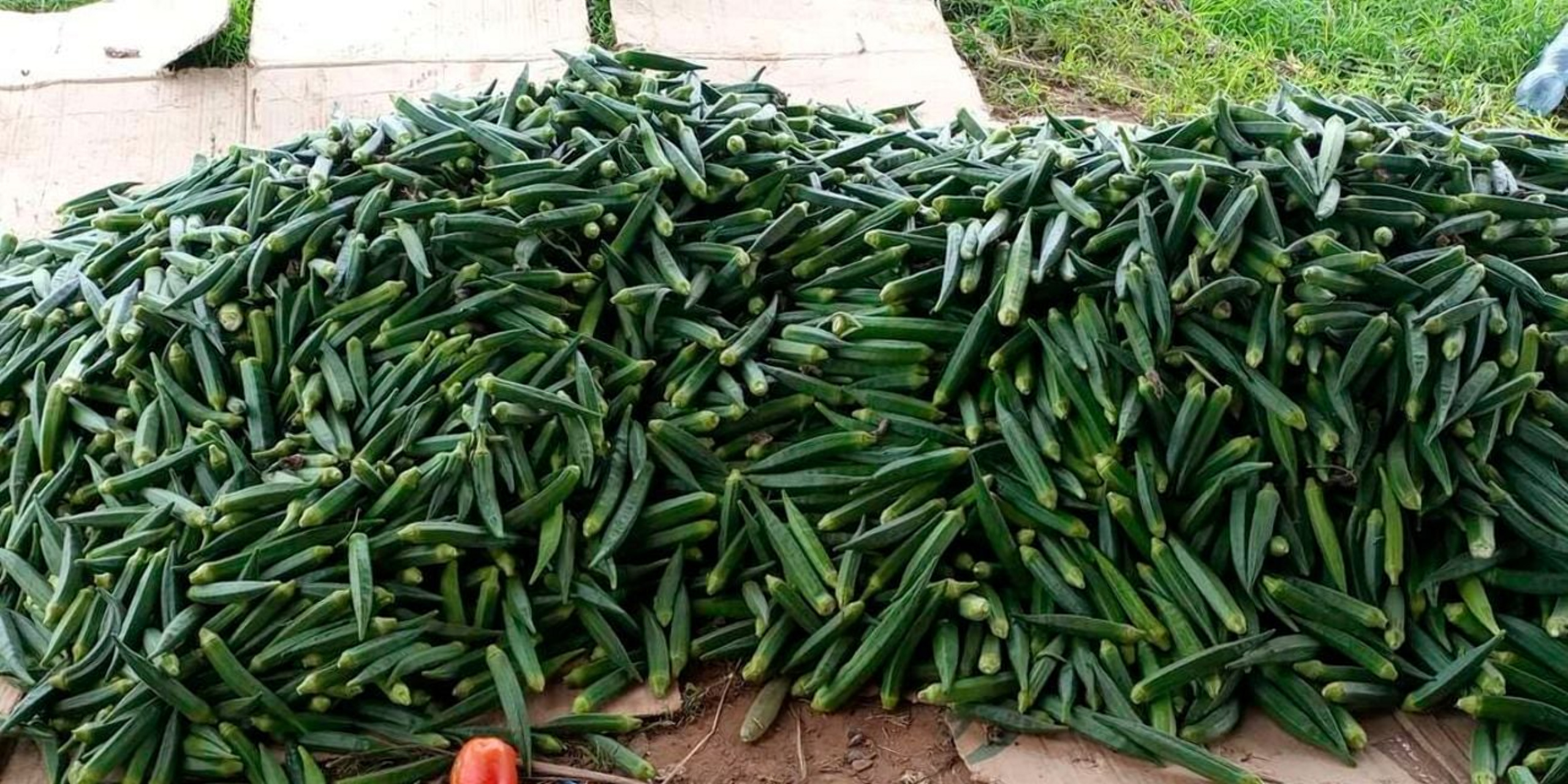Joyce Njoki is an Okra farmer based in Mandungani in Kilifi County. In her early days, Njoki underwent training at NYS in 2004 in which farming courses were being offered. Little did she know that these courses would come to help her in the long run.
“I had 6 months of basic training at NYS in Gilgil before spending the next two years at Naivasha Technical Training Institute. We planted cabbage, potatoes and coriander,” she revealed in a past interview.
At the time, Joyce Njoki found the courses and nation-building program to be unnecessarily long and tedious. She decided to quit for other opportunities
“I decided to take a course that would not last years so I joined the NYS driving school in Nairobi and got a licence,” she said.
Not long after, she got into the hospitality industry as a waitress. However, she soon found her goose was already cooked when COVID-19 hit.
At the back of her mind, farming had always been ‘Plan B’, should her formal career fail to yield fruits. She shared how she went from waiting tables as a waitress to being a farmer.
Plan B was activated when her time and resource investments in the tourism and hospitality industry went down the drain following the COVID-19 pandemic. The industry was hit with a lot of uncertainties and borders were locked.
In her first year of practising ‘Plan B’, Njoki cultivated tomatoes. Her smile indicates that leaving her formal job for farming was the best decision she ever made.
“We started by growing tomatoes in 2021. The first crop did well but the second was destroyed by pests. The losses taught us a lot,” she said.
Njoki and her husband had previously leased a 6-acre piece of land for Sh. 5,000 per acre annually. Here, they planted various vegetables such as Sukuma wiki, cabbages, maize, and spinach.
Despite the consistent demand, vegetable farming didn’t seem sustainable.
The couple went back to the drawing board and that is how they stumbled upon Mabenda, famously known as Okra. Since farming Okra, their journey has taken a turn for the better.
Monica Waiganjo: How dragon fruit farmers can produce 6 tonnes from a single acre
“We were looking for something that could help maintain the farm. It is probably the best crop to grow as it reaches maturity fast,” she explained.
Originally from India, Okra is a flowering plant that found its way to many English-speaking countries. Other names in different countries and communities are lady fingers, gumbo, bhamia, bhindi and bhendi. In Kenya, it is known as mabenda.
From seed propagation, it only takes 12 days until germination. The plant starts flowering 40 to 50 days later, and the pods mature only 3 days after flowering.
“One plant can produce 25 to 30 pods. Okra performs well in deep soil that is rich in organic matter. It thrives in loan, sandy soil with a Ph of 5.8,” Joyce Njoki further explained.
“With all the crop requirements, an acre can produce 90 to 100 kgs of pods. I have 4 acres under Okra. That means I get around 400 kilos per harvest. A kilo of Okra goes for Sh. 25 and Sh. 40, depending on the market,” she added.
Most of her harvest is sold in bulk to traders in the Kongowea market in Mombasa. Furthermore, she does get a few enquiries from locals who source the okra directly from her farm.
However, there is just one catch with the crop – its perishability. As with any other crop, large-scale production needs to meet the ready market once harvesting is done. Okra can only last for 3 days after harvesting, after that, it hardens.
“We suffered losses during the festivities in 2021. Kongowea market and others closed for days because people had travelled to their rural homes,” she reminisced.
Additionally, if the pods at the farm are mature and not harvested, they give in, wither and die on the fourth day.
“I had slashed plants on two acres as they were full of spoiled okras.”
However, production for them is not a problem at the farm. George Kamami, a horticulture expert noted that okras require areas with black volcanic soil, warm temperatures and constant water supply.
Njoki and her husband set up their farm with irrigation to ensure they harvest Okra all year round. Water is in plenty given the farm’s proximity to River Galana.
“We don’t use well water. Fortunately, one doesn’t need to dig deep to reach the water. We have two wells because of the size of the farm,” she said.
Did you love the story? You can also share YOUR story and get it published on Bizna Click here to get started.






